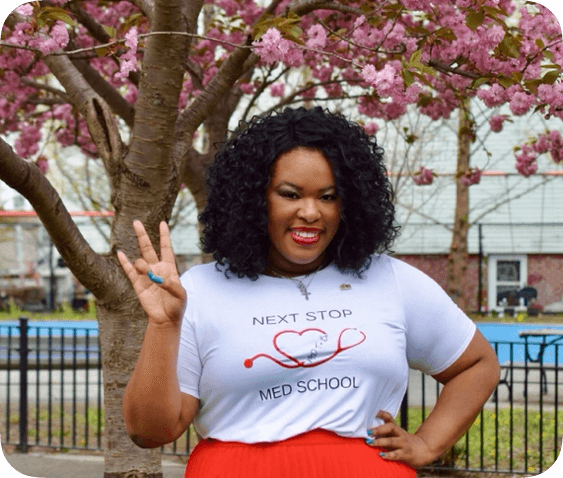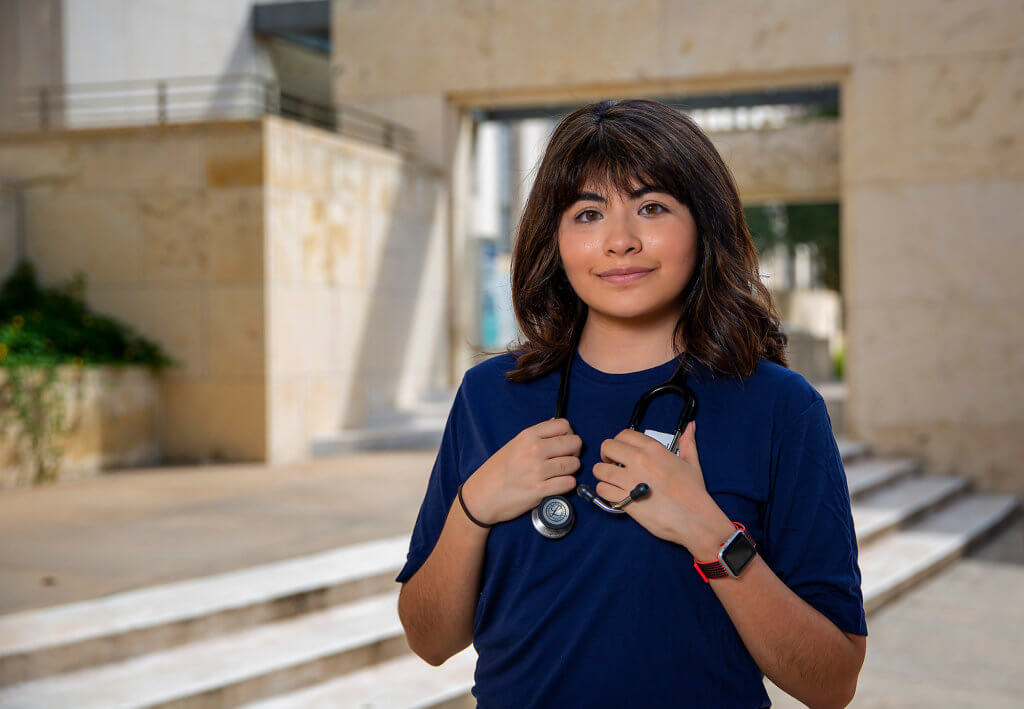UH College of Medicine welcomes its inaugural class

In late April 2020, Breanna Chachere was working from home as a project manager for the Perinatal-Neonatal Quality Improvement Network of Massachusetts, when she received a call from a faculty member at the University of Houston with exciting news: She had been admitted to the UH College of Medicine.
::::::::::::::::::::::::::::::::::::::::::::::::::::::::::::::::::::::::::::::::::::::::::::::::::::::::::::::::::::::::::::::::::::::::::::::::::::::
Looking for the latest on the CORONAVIRUS? Read our daily updates HERE.
::::::::::::::::::::::::::::::::::::::::::::::::::::::::::::::::::::::::::::::::::::::::::::::::::::::::::::::::::::::::::::::::::::::::::::::::::::::
“My heart stopped because I was overwhelmed with so much excitement and gratitude,” Chachere recalled. “All of the emotions and the stress culminated in that moment where it was extreme gratitude for this next step in this next part of the journey.”

Breanna Chachere is in the first cohost of 30 students admitted to the University of Houston College of Medicine’s inaugural class. (Photo courtesy of Breanna Chachere)
Chachere’s relatives predicted her journey into medicine and have been calling her “Dr. Bre” since she was young.
“They knew I would be a physician or go on to do something to change the world because I used to ride my bike and read a book at the same time,” said Chachere, who graduated with a bachelor’s degree in psychology from Rice University in 2013 and a master’s degree in public health from Boston University in 2018.
Now, the Alvin, Texas native is closer to fulfilling her family’s prophecy. With her background in public health, her goal is to become a primary care physician who works with disadvantaged populations and provides them with the tools and resources they need to improve their health.
Chachere is one of 30 students to be admitted into the first cohort of UH College of Medicine’s inaugural class.
“To have our first class of students enrolled and ready to start is incredibly rewarding. We’re very pleased with the group of students that have enrolled in our inaugural class,” said Stephen Spann, M.D., MBA, founding dean of the College of Medicine. “This particular group of students has a real interest in caring for the underserved.”
Located in the heart of Third Ward, the UH College of Medicine’s curriculum is designed to eliminate health disparities by addressing major social determinants of health—including food and financial insecurity, environment and housing—among vulnerable populations living in underserved communities.
“Our mission is very much of a societal mission,” Spann said. “Our mission statement is that we are accountable to society to improve the health and health care of the population of our region.”
The UH College of Medicine is particularly interested in training the next generation of primary care physicians in underserved communities, Spann added. The three key primary care fields are internal medicine, family medicine and pediatrics.
Considered the front line of health care, primary care physicians are often people’s first point of contact for all their health care needs; however, since 2011, medical students who matched to primary care programs have decreased. The Association of American Medical Colleges (AAMC) projected a national shortage of primary care physicians between 21,100 and 55,200 by 2032.
Primary care is critical for prevention, which includes access to routine checkups as well as the timely diagnosis and treatment of a comprehensive range of illnesses and conditions.
To prepare medical students, the UH College of Medicine’s curriculum includes early exposure to primary care starting the first week of school.
“Our students will spend half a day a week, every week, in the primary care setting. There’s a lot of exposure to the community,” Spann explained. “Our students will be part of interprofessional student teams. Each team will be assigned a family living in an underserved community that has measured medical and social problems and they will follow those families longitudinally for four years throughout medical school to learn more about the challenges of navigating a complex, fragmented health care system and about social determinants of health.”
For Chachere, who grew up with food insecurity and has many family members suffering from chronic diseases, the medical school’s mission of tackling health disparities is personal.
“Being able to address health needs in the broader social environment within that context of community is why this school is going to be beautiful,” she said.
Cenk Cengiz, another one of the first 30 students admitted into the UH College of Medicine, was 13 going on 14 when he and his family came to the United States from Turkey in June 2002.

Cenk Cengiz, a University of Houston undergraduate alumnus, will be attending the UH College of Medicine. (Photo courtesy of Cenk Cengiz)
“When we first immigrated to the United States, it was challenging times for us. I couldn’t afford health care insurance,” said Cengiz, who currently works as a tissue engineer doing stem cell transplants in Baylor College of Medicine’s Cell and Gene Therapy Department. “I know other immigrants, like myself, most of the time, they’re reluctant to seek health care because they’re embarrassed or shy to go see a doctor because they think they’ll be judged by their lack of resource. I thought that going into medicine and seeing these patients who are going through rough times, I would be in a better position to understand their struggles and their issues and, hopefully, help them better. I hope that them seeing me—someone from their tribe—will give them hope.”
Of the medical school’s first 30 students, 73 percent are underrepresented minorities in medicine, 57 percent are first-generation college students and 40 percent come from a low socioeconomic status.
Thanks to a $3 million gift from an anonymous donor in 2018, each of the first cohort students will receive a $100,000 four-year scholarship to cover tuition and fees.
“This acceptance is a win, not just for [the students], but also for our communities because most of us are first-generation college students and many of us are the first in our families to be physicians,” Chachere said. “This is a pivotal moment to see medicine go in a new direction and I’m excited to be a part of that legacy.”
The first cohort begins orientation July 20. For the first two years, classes will be held in the Health 2 Building in the UH Medical District while the new $80 million building for the medical school is under construction. The college will have the capacity to enroll 480 students.
“We’re excited about putting our curriculum to work,” Spann said. “The opportunity to really launch and begin to train the physicians that our community needs is really great.”




